Are Any MCU Gods Safe from Gorr the God Butcher in Thor: Love and Thunder?
Who will make Gorr the God Butcher's kill list in Thor: Love and Thunder? We run down the MCU's most prominent gods to date!
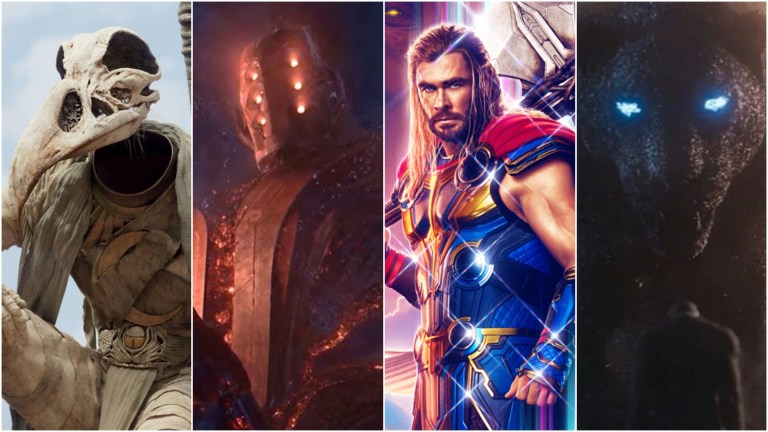
This article contains MCU spoilers
Gorr the God Butcher has always been destined to kill a lot of gods in Thor: Love and Thunder. As we saw in the trailer for the upcoming movie, the corpse of the mighty Falligar the Behemoth is evidence of the alien’s immense hatred of deities, and his bid to rid the galaxy of anyone fashioning themselves into a god. When it comes to the inhabitants of the Marvel Cinematic Universe though, you’d be forgiven for the inevitable confusion surrounding one crucial question: Who can actually be defined as a god?
Well, we’re defining a god as any being that holds incredible power, and usually immortality. They are often worshipped and surrounded by rich mythology, getting placed on a pedestal. They have a distinct purpose as well, whether that’s to shape worlds or to become a cultural influence and represent a particular societal value. There might be demi-gods out there (and pretenders), but in the context of the MCU, only a select few can fall into that category.
So, who does Gorr have in his sights in Thor: Love and Thunder, what makes them so much more than mankind, and are there any loopholes through which they can escape Gorr’s wrath?
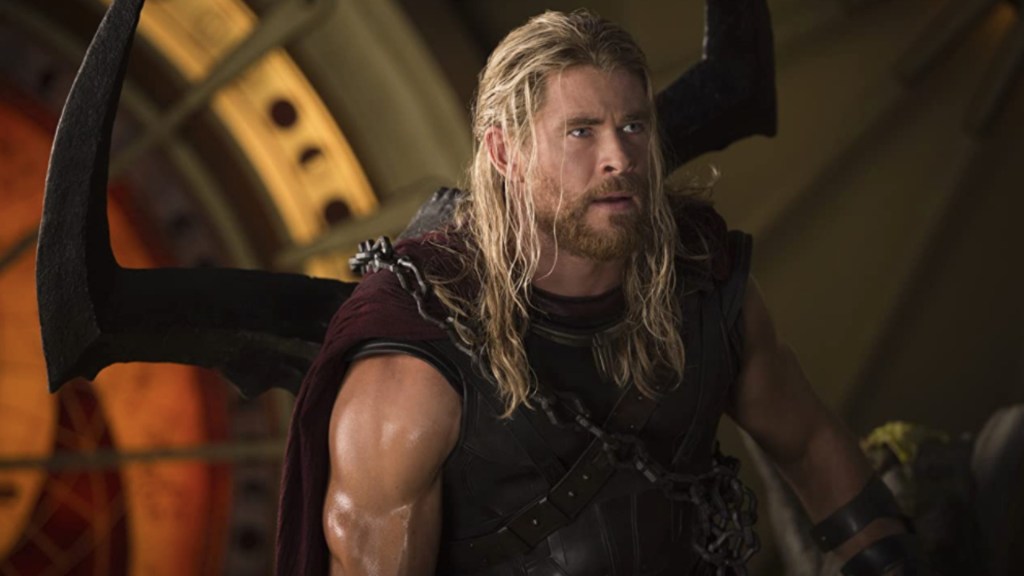
Asgardians
The Asgardians were arguably the first deities to be introduced to audiences in the MCU, debuting in Thor. Despite the suggestion that they are simply beings from another realm, those who hail from Asgard aren’t humble enough to shy away from the term “god”. Humanity has worshipped them as Norse legends, with each figure signifying a different aspect of their world. A god of thunder, a trickster, and the All-Father are just a few examples of ancient myths making their way into Marvel continuity.
Marvel has taken some creative license when it comes to the representation of these Asgardians. Although familiar fables are intertwined with their own storytelling, the comics and indeed the big screen have fashioned Thor into more of a superhero than a god. They’ve even added a range of original characters like the Warriors Three, to help round out their iteration of Asgard. Regardless, they are essentially immortal, genuinely powerful, worshipped by numerous species, and carry a protective role over the Nine Realms. Midgard might now play host to New Asgard, but its people are still as godly as they once were.
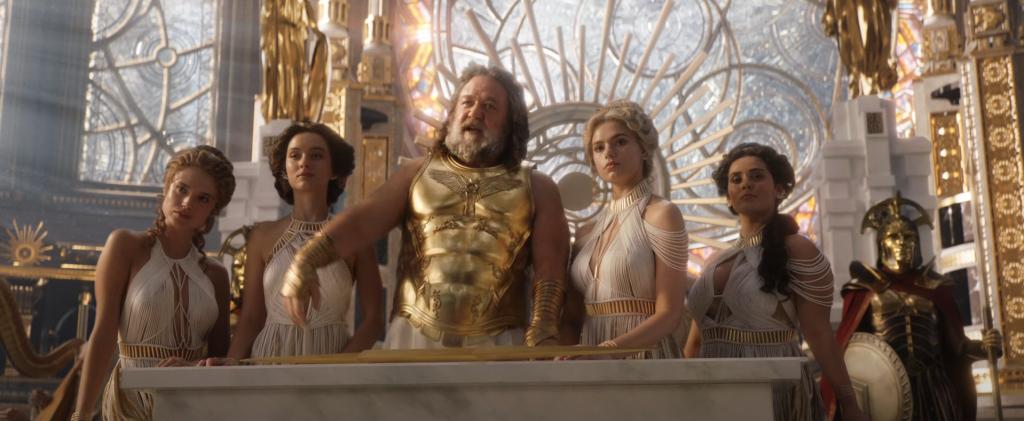
Olympians
The Olympians are yet to make their impressive, if not slightly cheesy, debut in the MCU. Thor: Love and Thunder will mark the introduction of these Greek legends, a pantheon that’s also extended to ancient Roman civilization as well. Zeus, Aphrodite, Hermes, Apollo, Hecate, Hades… the list just goes on. All of these deities have played some significant or minor role in the comics, and are likely to be added to the MCU roster.
Mount Olympus is their traditional home and they may well have a similar treatment to the Asgardians, getting presented initially as an alien species. Ancient myth paints the Olympians as far from perfect, with their petty squabbles and extreme egos sometimes affecting Earth for the worst. But their spectacular gifts and status across human history are enough to grant them god status. Their appearance in the trailer for the upcoming Thor film does suggest that most of them will meet a grizzly fate at the hands of Gorr the God Butcher.
For those wondering, Hercules, or Heracles in the Greek form, might have begun life as a demi-god, but he does ascend to become the god of heroes; a role that the MCU might present to continue the warrior’s adventures.
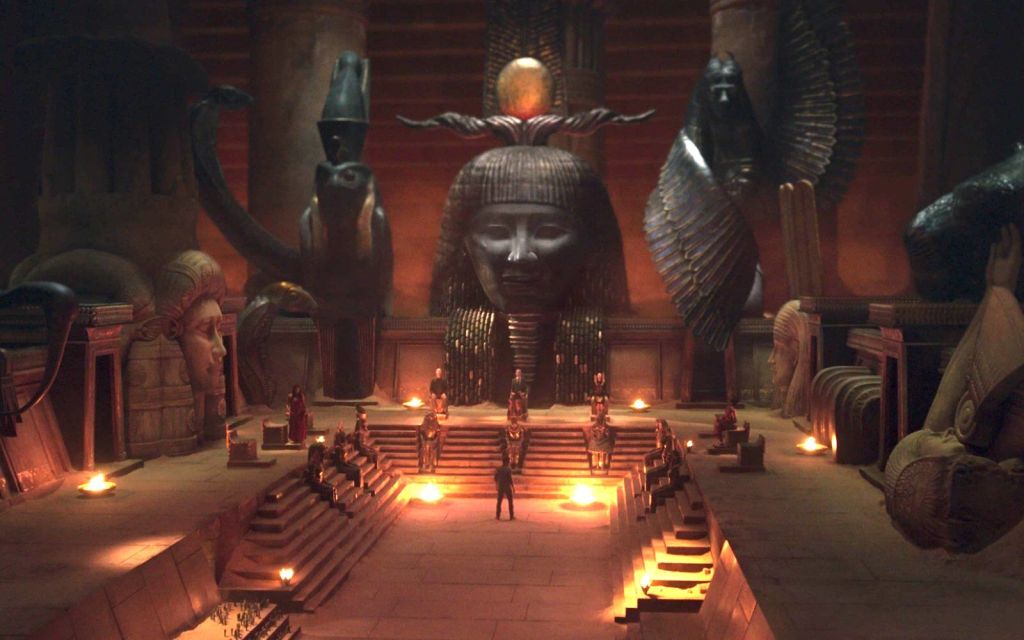
The Ennead
Moon Knight has added yet another pantheon to the MCU, loosely known as the Ennead. In actuality, they’re the gods of ancient Egypt, fashioned from animal-based imagery and tasked with overseeing the development of human civilization. There are far fewer Egyptian deities than Asgardians or Olympians, but their power and status on-screen are perhaps far greater. They are presented as gods in the truest form, with Khonshu, Taweret, and Ammit becoming the standouts of the group.
Each god takes on a human avatar who they encourage to do their bidding in the mortal plains. There’s an afterlife and other huge existential concepts that would have shaped humanity’s understanding of reality. But those who the ancient Egyptians once built temples to have also influenced other civilizations. Bast, the panther god, might have found her origins with the Ennead, but is also the being worshipped by the Wakandans. The Black Panther mantle itself is an homage to this graceful and almighty creature.
While Moon Knight and Scarlet Scarab might represent the gods themselves, they are not considered to be deities. They are heroes or warriors that are granted limited powers by the ancient rulers, but they certainly wouldn’t be in the sights of a hunter like Gorr.
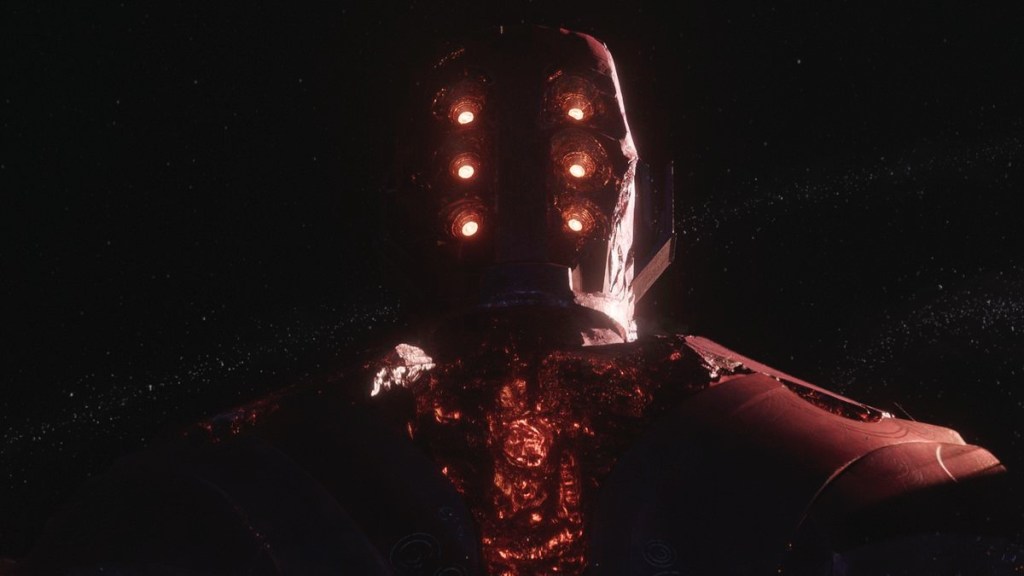
Celestials
Of all the beings in the Marvel Universe, the Celestials are the closest to becoming gods in the truest sense. They shape our very reality, creating the universe from the void and producing planets and populations to fill that space. They are neither good nor evil, instead serving the continued survival of the universe. While other pantheons like the Asgardians might boast a full range of personalities and objectives, the Celestials are singular in their purpose, and led by the judge Arishem in Marvel’s Eternals.
Most of them might oversee existence, although there is actually an exception: Ego the Living Planet identified himself as a Celestial in Guardians of the Galaxy Vol. 2. Bored by his infinite lifespan, he crafted his own planet and tried to create an heir. Peter Quill was the result of that experiment, a demi-celestial who could have held that same power. In Marvel Comics, he becomes the Star-Lord in a literal sense; a god amongst the cosmos. But in the MCU, he reverts back to just Peter, the out-of-his-depth leader of the Guardians of the Galaxy.
Even as all-powerful entities, the Celestials have faced death. After the events of Eternals, there are now the remnants of a Celestial on Earth that could serve as Avengers Mountain, as it does in the comics, and the galactic location known as Knowhere is actually the creepy severed head of a former member of the pantheon.
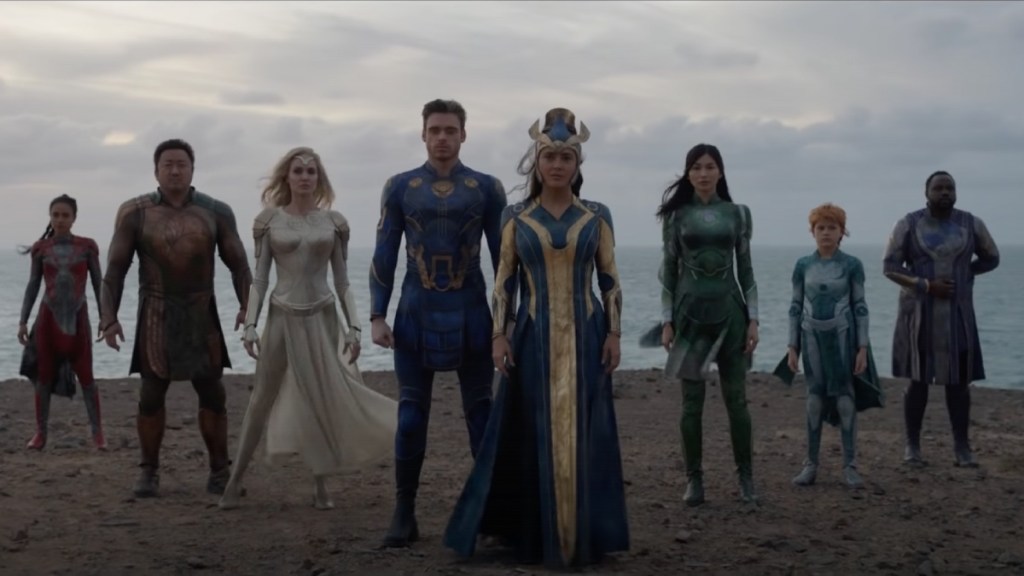
Eternals and Deviants
This is where it gets a little complicated. As we saw in Eternals, the Celestials first created the Deviants, who were mutated monsters with very little in the way of consciousness. Their level of power and their role in reality suggests they could be of a divine nature, even if their true sentience was lacking.
The Celestials then forged the Eternals, who have gone on to influence civilizations. As the name suggests, they live forever and have been worshipped by humanity as if they are gods. In reality, the line is pretty blurred. A character like Eros is both Thanos’ brother (not considered a god) and a member of the Eternals, while the likes of Thena has been treated as if she is an Olympian.
For the MCU, it’s strongly implied that demi-god status befits the Eternals, but a butcher like Gorr might view this in the same way as any normal deity. Their powers are, for lack of a better phrase, god-like, and their timeline indicates that they have interfered with Earth’s timeline much in the way a traditional set of deities would. They might be original creations, but they are bound by the same mythology as the Norse, Greek, and Egyptian pantheons.
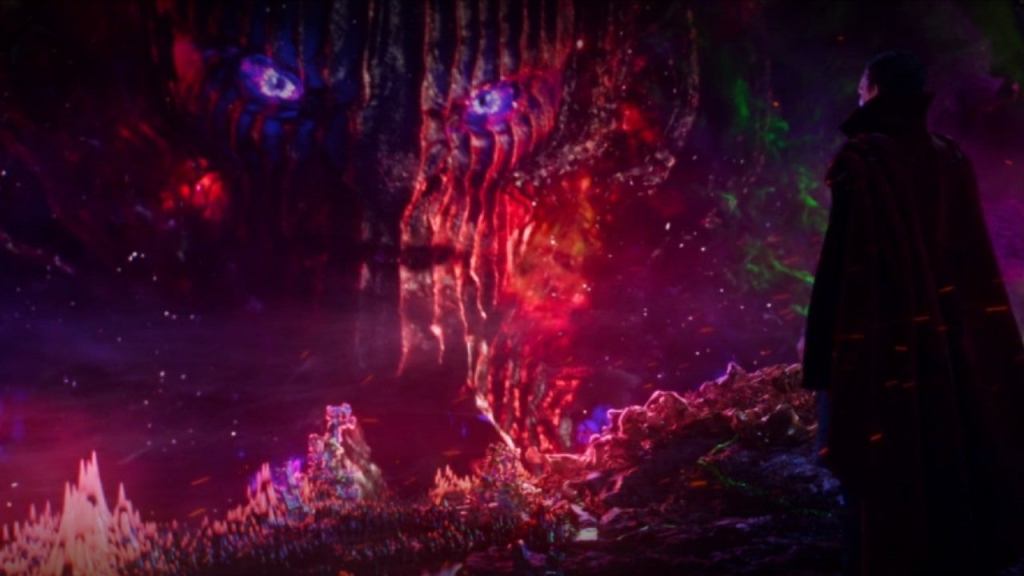
Dark Beings
There are a lot of neat categories to separate these deities out into, but in the realms of darkness, it’s pretty murky. There are a range of demonic entities that could be considered gods, but don’t fit into a set box: Doctor Strange’s Dormammu, the Dweller in Darkness as seen in Shang-Chi, the Elder god Chthon from Doctor Strange in the Multiverse of Madness, and even Runaways’ D’Spayre, all represent a shadowy, unnamed pantheon.
In the context of the wider MCU, Ghost Rider’s very existence in Agents Of S.H.I.E.L.D. also points to other satanic figures who are yet to be fully introduced on screen. Plenty of characters have tapped into the darker power that plagues this pantheon of evil, with each eternal deity becoming symbolic of the misery and pain that has plagued both conventional reality and other plains, such as the Dark Dimension. Those who tap into the abilities of these old gods have become corrupted by them. The Darkhold, as an artifact of that mythology, is a perfect and grim example.
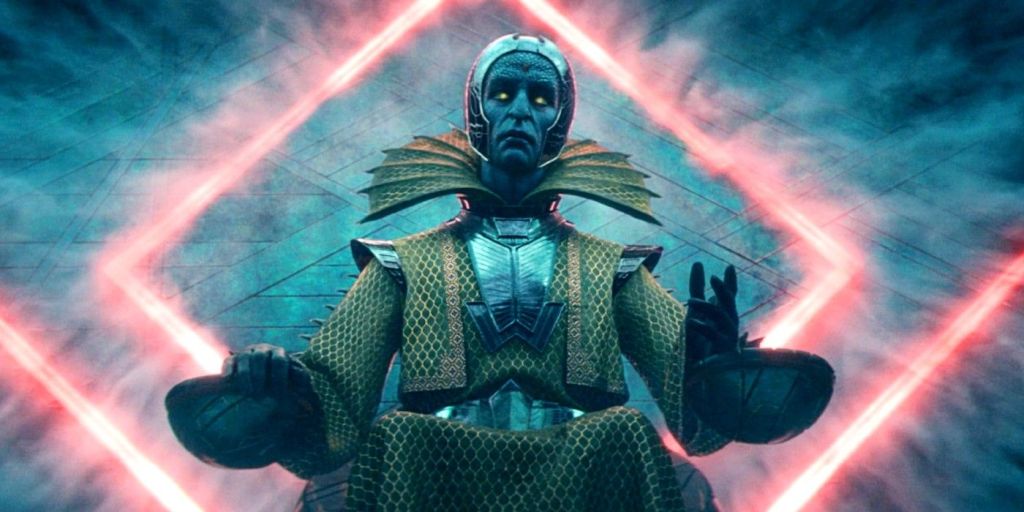
Time-Keepers
In Marvel’s Loki, the Time Variance Authority had convinced itself that it both worshipped and served an immense pantheon of beings known as the Time-Keepers, who oversaw the sacred timeline and put a stop to any deviances. That concept turned out to be woefully false, with the trio revealed to be Wizard Of Oz-esque robots. Currently, there is only one potential god at the end of all things.
He Who Remains was once a man, but with the knowledge that he has procured he has ascended far past the realms of a normal human. He might be destined to be Kang the Conqueror in other worlds, but as the being that oversaw all of time, He Who Remains should really be considered a deity of epic proportions. His death at the hands of Sylvie in the finale of Loki actually changed reality forever, demonstrating both his own importance and all the resulting multiversal chaos that’s about to ensue.
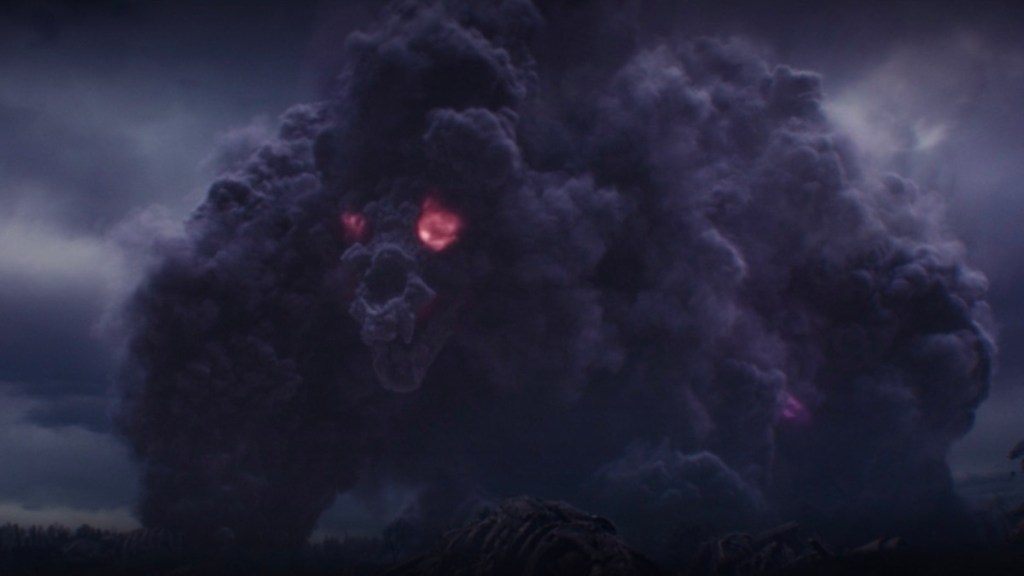
Cosmic Entities
Much like the darker beasts of the MCU, the cosmic entities that influence reality aren’t easy to define. From the reality-eating Alioth in Loki, to the briefly-seen Living Tribunal, each being carries out a very different responsibility. They work alongside one another in a constant balance that allows the cosmos to keep on spinning.
The Watchers are the most intriguing amongst these universal gods. Tasked with never interfering, they simply watch and wait as witnesses to the major events that unfold across the multiverse. And, let’s be honest, how long was that really going to last? Uatu is the most important amongst this particular group, and has already broken his oath of avoiding engagement in What If…? With Eternals showing a shift in the cosmic balance, there’s no telling which deity will rise up to bring some semblance of order.

The Elders
Much like the Eternals, there’s a bit of confusion when it comes to defining the Elders. They’ve been around for centuries, are incredibly powerful, and are worshipped in rather unique and unconventional ways. The Grandmaster (Jeff Goldblum) and the Collector (Benicio del Toro) are two current examples of Elders in the Marvel Cinematic Universe, although the comics have seen their roster grow to include characters like The Gardener, a being obsessed with cultivating plant life on every world.
Each one has spent their time carving out a unique path, whether that be based on the spirit of competition, or the obsession with cataloguing every species. Are they deities in the truest of senses? Perhaps not. They are demi-gods at a push, though, and have jumped up their status enough that no one could tell them otherwise. Perhaps they really did fake it until they made it!
With such a diverse range of gods for Gorr the God Butcher to hunt, the antagonist of Thor: Love and Thunder certainly won’t be lacking for immortal prey. That’s without including the full roster of deities that could be taken straight from the comic book page, and who are yet to appear on screen! From the Celestials to the Olympians, no one is safe, but who will ultimately survive the latest MCU film so that they can continue to do whatever gods do best?
